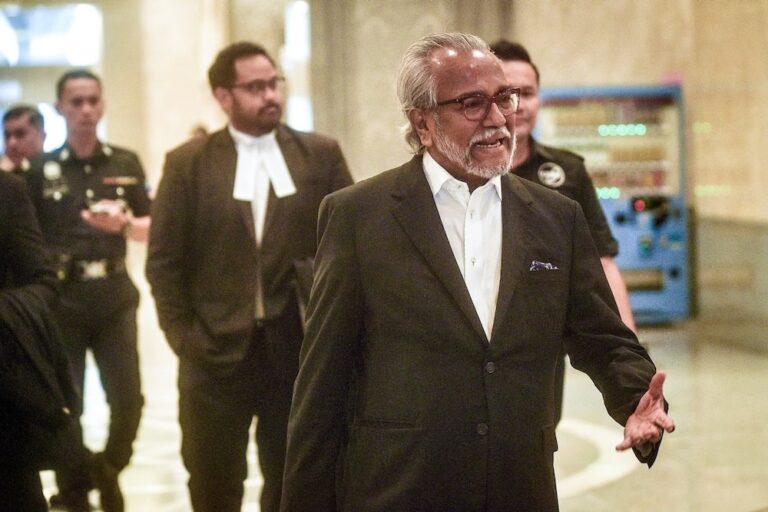(SEAPA/IFEX) – The following is a SEAPA press release: Local free expression group calls for media reform following ruling government’s polls setback The unprecedented losses borne by Malaysia’s ruling coalition in the 8 March 2008 polls reflected not only the people’s disenchantment with the general state of affairs but also their rejection of the propaganda […]
(SEAPA/IFEX) – The following is a SEAPA press release:
Local free expression group calls for media reform following ruling government’s polls setback
The unprecedented losses borne by Malaysia’s ruling coalition in the 8 March 2008 polls reflected not only the people’s disenchantment with the general state of affairs but also their rejection of the propaganda spun by government-controlled mainstream media, thus pointing to a need for media reform, said the Centre for Independent Journalism (CIJ), a SEAPA partner.
The National Front, an alliance of race-based parties which had dominated the political landscape of the country since it achieved independence in 1957, lost its usual two-thirds majority in Parliament as well as five states to the opposition, obtaining only 51.5 percent of the popular vote.
That many votes went to the opposition at both federal and state levels, despite the media’s heavy bias toward the incumbent federal government in terms of space and slant as found in a joint monitoring of six major newspapers, indicates a loss of credibility in both government and media.
The media monitoring project, conducted by CIJ, the Writers Alliance for Media Independence and Charter 2000-Aliran, found, on average, 65 percent of elections coverage devoted to reports favouring the incumbent federal government and projections of its “imminent victory”, 12 percent on pro-opposition stories, while issues of interest to voters – such as party manifestos and concerning issues of the day – received scant media attention. ( Full report here: http://www.cijmalaysia.org/images/documents/report%20on%20the%20media%20monitoring%200308.pdf ).
Announcing the findings in a 29 March release, CIJ Executive Director Gayathry Venkiteswaran said media owners – many of whom are closely linked to the coalition that now forms the federal government with only a simple majority – and the coalition itself must take heed of the message that the people have delivered at the ballot box or risk becoming irrelevant.
Venkiteswaran recommended reform inside and outside newsrooms. Rather than acting as the government’s mouthpiece, she said, the media should “return to the ethical and professional standards of fairness, objectivity, balance and accuracy”, while the authorities should encourage competition by allowing more media outlets to be set up and abolish laws that restrict media.
Already, the political sea change in Malaysia is expected to provide a long-awaited impetus for freedom of expression as a state chief minister and 15 other elected representatives – all from the federal-level opposition parties – have pledged to push for a freedom of information law.
The newly minted chief minister of Penang, Lim Guan Eng, said the state will enact a freedom of information bill, according to press reports. Lim is no stranger to Malaysia’s restrictive environment for free expression, having been imprisoned two years in 1987 under the Internal Security Act during a massive clampdown on dissent and a year in 1998 on charges of “sedition” and publishing “false news”.
Also promising their commitment are 15 elected representatives who had, during their campaign rounds, endorsed the demands of the Civil Society Initiative for Parliamentary Reform, which includes the tabling of such legislation, said CIJ in an 11 March release.
The initiative, of which CIJ is a member, is a grouping of non-governmental organisations working together to raise standards in politics and governance. It is calling for a review of media and information laws, among others, naming in particular the Printing Presses and Publications Act, Official Secrets Act, Sedition Act and Internal Security Act.
The 15 people’s representatives are Dzulkifli Ahmad, Ean Yong Hian Wah, Hee Loy Sian, Lau Weng San, Edward Lee, Liew Chin Tong, Mohd Nasir Hashim, Ong Chin Wen, Jeff Ooi, Tony Pua, Charles Santiago, Sivarasa Rasiah, Teng Chang Kim, Teo Nie Ching and Elizabeth Wong.
Kelantan, run since 1990 by a political party in opposition at the federal level, had targeted tabling such a bill in 2007, said CIJ.
Beyond laws, however, a change of attitude from the government toward the public right to information is also in order, said CIJ’s Venkiteswaran, who urged state authorities to be proactive in releasing information, by “engaging state radio and television stations to broadcast state meetings and public discussions as well as other public interest issues”.
Again, a hopeful sign toward this direction is the live telecast of the Parliament’s question time starting from 30 April, after the new Parliament convenes.
Venkiteswaran also suggested that state governments allocate grants and other financial support for communities to have their own media.
See SEAPA’s earlier media statement: http://www.seapabkk.org/newdesign/alertsdetail.php?No=829


